Announcing the 2025 Scholars and Mentors for the Towards 2044: Horowitz Early Career Scholar Program
SRCD is pleased to announce the 2025 cohort for the Towards 2044: Horowitz Early Career Scholar Program !
The Frances Degen Horowitz Millennium Scholars Program (MSP) was developed in 1999 as a vehicle to encourage and support scholars from under-represented ethnic/racial groups from North America in pursuing graduate work in developmental science. In 2020, the Wallace Foundation provided funding to SRCD to strengthen the program, extending it from mentorship specifically at the SRCD Biennial to a year-long program. The new name for the extended program is now the Towards 2044: Horowitz Early Career Scholar Program. This mentorship opportunity takes its name from the year when the adult population of the United States is estimated to become a diverse majority.
The Towards 2044: Horowitz Early Career Scholar Program will provide educational and professional development for scholars from underrepresented groups, giving them a launching point for a career in the field of child development with the guidance and mentorship from more advanced scholars. The selected scholars and mentors will meet in Washington, DC to kickstart the program, and then participate in a series of monthly virtual seminars and one-on-one mentor/mentee meetings through December 2025. These experiences will enable the rising scholars to gain valuable exposure to the field and allow them to network not only with their mentors, but also with other scholars and professionals.

The program is led by the Advisory Committee including Dr. Michael Cunningham (Tulane University) Dr. Mayra Bámaca (University of California, Merced), Dr. Charissa Cheah (University of Maryland, Baltimore County), Dr. Stephen Chen (Wellesley College), and Dr. Stephanie Miller (The University of Mississippi) and is supported through generous funding from the Wallace Foundation.
Please join us in welcoming this year’s Towards 2044: Horowitz Early Career Scholar Program cohort of Scholars and mentors!
ADVISORY COMMITTEE
Stephen Chen and Stephanie Miller, will be joining Michael Cunningham, Mayra Bamaca, and Charissa Cheah on the Advisory Committee.
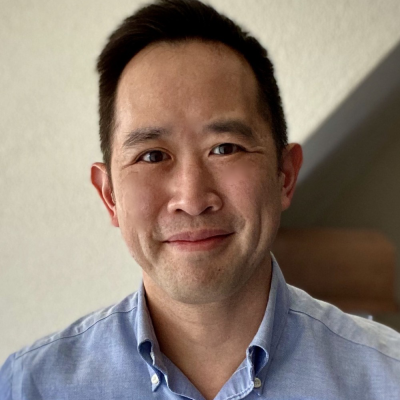
Stephen Chen
Stephen Chen is an Associate Professor of Psychology at Wellesley College, where he directs the Culture, Family, and Development Lab and teaches courses in Asian American Psychology, Cultural Psychology, and Culture and Emotion. His research examines how cultural and family processes interact to influence development and mental health across the lifespan, and is . In addition to the Horowitz Scholars Program, he has served on SRCD's Teaching Committee and the Steering Committee of the SRCD Asian Caucus.
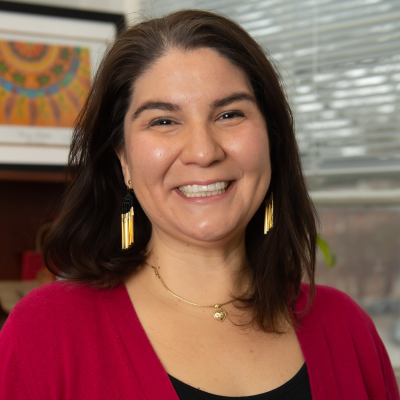
Stephanie Miller
Dr. Miller is an Associate Professor and the Provost Faculty Research Scholar for Institutional Transformation at the University of Mississippi. Her research program focuses on early cognitive development, with an emphasis on executive function (EF). Her work aims to explore the emergence and development of this foundational cognitive skill within a broader sociocultural context. She has work examining how early communicative and linguistic skills support the emergence of cognitive control across different cultural contexts; how executive function relates to social functioning in friendships, social problem solving, and social cognition; and how EF relates to creative cognition. Her current work is focused on examining foundations of early EF and examining the effectiveness of mindfulness-based interventions on social-emotional development within a preschool curriculum across multiple and diverse contexts.
SCHOLARS
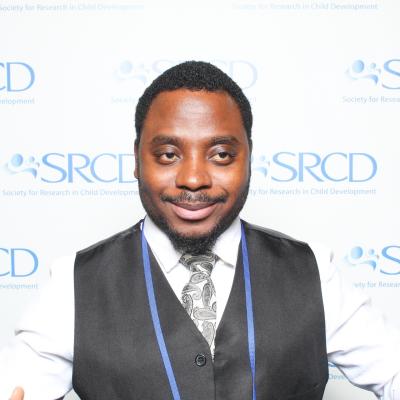
Ayodeji Adegoke
Ayodeji Solomon Adegoke is a first-year PhD student in Developmental Psychology and Quantitative Methods at Wayne State University, in the Adolescent Relationship in Context (ARC) Lab, with specific research interests in peer relationship and victimization, parent-child relationships, and adolescent psychosocial development. His volunteer work with bereaved children, along with the group and independent research projects he has conducted and presented at various conferences and workshops, has further strengthened his interests in the field.
Prior to this current doctoral program, he completed his master’s degree in Psychology at the University of Louisiana at Lafayette, where he doubled as a research assistant in the Data Science in Social and Community Psychology. His experience as a research assistant, where he applied his quantitative research skills, alongside his strong passion for human development, sparked his aspiration to become a quantitative researcher focused on shaping policy in the areas of family and child development.
His diverse experiences in understanding and studying human development have equipped him with unique perspectives and skill sets that continue to develop as he pursues his aspirations.

Maria Calderon Leon
Maria Calderon Leon is a doctoral student in Developmental Psychology at the University of California, Davis. She earned a B.S. in Psychobiology from UCLA in 2020. Her research takes a lifespan approach from childhood to emerging adulthood to elucidate how we shape and are shaped by our affective experiences and our close relationships. As a Latine, first-generation student, Maria is committed to empowering underrepresented individuals in higher education. She has mentored undergraduates for over four years and is actively involved in service at UC Davis.
While at UCLA, Maria was a research assistant in Dr. Jennifer Silvers’ lab, contributing to studies on social decision-making and well-being in emerging adulthood. She was also a research assistant in Dr. Bridget Callaghan’s lab, studying links between early life adversity and affective neurodevelopment. From 2021–2023, she was the lab manager for the UC Irvine Measuring Undergraduate Success Trajectories project, researching contributors to undergraduate success. Now, as a doctoral student in Dr. Kristin Lagattuta’s Mind-Emotion Development Lab, Maria investigates how children and adults predict, experience, and misjudge their emotions. In other work, she examines how loneliness and sense of belonging in college vary as a function of friend network characteristics

Yarui Chen
Yarui Chen is a Ph.D. student in the Department of Educational Psychology and Learning Systems at Florida State University. She is a graduate research assistant in the Florida Center for Reading Research, working on an IES-funded project that aims to understand teachers’ language support in early childhood development. Prior to starting the Ph.D. program, Yarui received a Master of Education in TESOL and Applied Linguistics from Boston University, where she worked at Social Learning Lab and Conference on Language Development. She later worked as ESL teacher in higher education institutions in Boston. Having experienced learning disabilities in early childhood and overcoming them later, she developed a strong interest in understanding how learning and cognition developed, particularly in early childhood language development. Broadly, she is interested in understanding the role of executive functions of children in language learning and how parents or teachers scaffold language development. An emerging interest of hers is to explore individual differences in reading and narrative language skills among monolingual and bilingual children demonstrating lower language performance in the United States.

Andrea Donis
Andrea Donis (she/her/hers) is a clinical psychology doctoral student at Loyola University Chicago. She received her B.A. in Social Welfare from the University of California, Berkeley and her M.A. in Clinical Psychology from Loyola University Chicago. Andrea’s research interests span across basic and implementation science. On one end, she is interested in understanding the impact of adversity (e.g., trauma exposure, immigrant-related stress) among Latine immigrant-origin youth, with a particular interest in understanding how family-level (e.g., parenting, culture) factors affect this relationship. She is also interested in investigating the implementation and effectiveness of school- and community-based, trauma-informed interventions for U.S. Latine immigrant-origin youth and families, with a particular interest in evaluating their cultural responsiveness, acceptability, and sustainability. Through this line of research, she aims to adequately contextualize the lived experiences of U.S. Latine immigrant-origin youth and capture the intersectionality of these experiences based on individual-level differences (e.g., gender, ethnicity, immigration status), to advocate for culturally relevant, trauma-informed mental health care for this population. As a bilingual clinician, Andrea also aims to increase the cultural responsiveness and accessibility of mental health services for underserved Spanish-speaking families. In the future, she hopes to focus her line of research on unaccompanied immigrant minors from Central America, as this continues to be an underserved immigrant group with unique and complex needs. To this end, she is also interested in translating her research to inform policy-level changes in the sociopolitical landscape.

Zinah George
I am a second-year Ph.D. student in Developmental Psychology at Indiana University Bloomington. As a refugee and first-generation college graduate, I am committed to addressing the challenges faced by marginalized communities. My research combines qualitative interviews, quantitative surveys, and physiological data to examine stress, resilience, and family dynamics in immigrant and refugee families. I focus on how early stress and caregiving roles influence adolescent mental health, academic success, and coping strategies.
I am currently leading a research project that aims to understand the effects of parentification on the mental health and academic performance of adolescents from Arab American immigrant and refugee households. I use in-depth qualitative interviews with mother-adolescent dyads to capture their lived experiences, followed by a culturally informed survey to assess the prevalence and impact of these family dynamics in a larger sample.
In addition to research, I am deeply invested in mentorship and community engagement. I have supported underrepresented students in their academic development and growth as emerging scholars. My long-term goal is to bridge research and practice by creating culturally responsive resources that strengthen family well-being and promote positive development for immigrant and refugee youth.
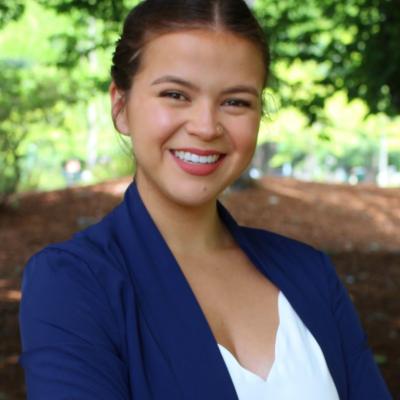
Felicia Gutierrez
Felicia Gutierrez (she/her) is a doctoral candidate in the Community and Applied Developmental Psychology program at the University of Illinois Chicago (UIC). She currently works under the mentorship of Dr. Josefina Bañales and serves as a graduate research assistant in the CAMBIAR Collective, a lab that emphasizes community-based youth participatory research. Felicia earned her Master’s in Couple and Family Therapy from the University of Oregon in 2021 before deciding to pursue a career in mental health research. This shift in career trajectory resulted directly from her work as a school therapist in both middle and high schools, where she witnessed firsthand the needs of youth of color in academic settings. Her research primarily explores the interconnectedness of mental health, school-based ethnic-racial socialization, and the development of critical consciousness, particularly in the lives of Latine youth.
Outside of research, Felicia treasures her role as a daughter, sister, friend, and auntie. She holds above all else her community of loved-ones and is committed to staying grounded in the values and people that have shaped her purpose. In her spare time she enjoys watching horror, reading fiction novels, and cuddling her kitty, Iggy Biggz.

Aida Ismailova
Aida Ismailova is a third-year Ph.D. student in Department of Human Development and Family Science at the University of Missouri. Originally from Kazakhstan, she earned her bachelor’s degree in foreign languages from Kostanay State Pedagogical Institute in 2009 and later completed her MA in Education at the University of Bath in the UK. Aida aspires to work in academia and conduct research in child development. She aims to leverage her background in administration and education to explore how protective factors like motivation and self-regulation foster resilience among children who have faced early life adversities. Her research explores how practices of parents and early childhood educators shape children's developmental and educational outcomes, particularly in addressing disparities in school readiness. It also seeks to promote equitable, inclusive practices that enhance resilience and well-being in early childhood.
Outside of her academic work, Aida is devoted to an energetic kindergartener. She fosters cats from a local shelter and enjoys exploring nature and discovering new places with her family.

Precious Ngwayarudza
Precious is a third year Developmental Science Ph.D. student in the Human Development and Family Science Department at North Dakota State University. Her research focuses on emotional well-being, personality disorders, and coping strategies among children aged 0 to 10 years. Under the mentorship of Dr. Joel Hektner, she is exploring the role of sleep problems in mediating the link between maternal depression and child aggressive behavior. She is also working with Dr. Sean Brotherson to evaluate and compare the effectiveness of early childhood parent education programs. In addition, she is collaborating with Dr. Leanna McWood on a meta-analysis exploring how parental coping strategies influence youth coping behaviors. She received her B.S in Psychology and M.S in Child Rights and Childhood Studies from Africa University. She worked as a volunteer care worker for homeless seniors, prison rehabilitation assistant, and child protection intern. These experiences strengthened her passion for working with children to help prevent instability later in life and foster resilience. Her goal is to contribute to the development of evidence-based and culturally relevant prevention and intervention programs that enhance the well-being of at-risk children and adopt them to improve the lives of children and their families in Zimbabwe.
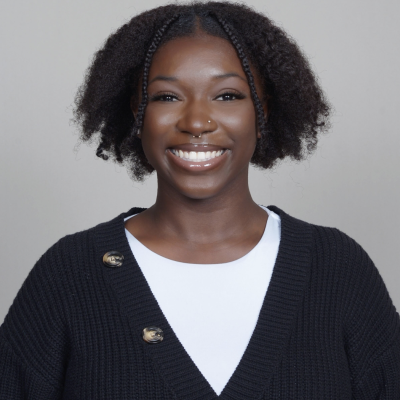
Miah Robertson
Miah Robertson is a second-year Ph.D. student in the Applied Developmental Science (Prevention Science track) program at Colorado State University. She earned a Bachelor of Arts in Psychology with a minor in Leadership Studies from Hampton University in 2024. During her undergraduate career, Miah gained hands-on experience implementing behavior modification interventions for elementary-aged children diagnosed with mental disorders such as ADHD, conduct disorder, and autism through various research internships with West Virginia University and Florida International University. These experiences sparked her interest in understanding how parenting influences children’s behavioral and developmental outcomes, specifically from infancy to early childhood. Her current work focuses on understanding the role of resilience in caregiving and examining resilience levels across diverse populations, as it relates to maltreatment risk. Miah hopes to become a research scientist in child welfare and contribute to the advancement of equitable, strengths-based policies that improve the developmental outcomes for diverse populations, specifically Black youth. Beyond her academics, Miah enjoys pursuing creative arts projects, spending time in nature, and exploring her local communities.

Ann Shun Swanson
Ann Shun Swanson is a first-year PhD student in Social Welfare at the University of Wisconsin-Madison. She specializes in child welfare and foster care research, with a focus on leveraging large-scale longitudinal administrative data to uncover patterns of cumulative adversity, map life trajectories, and identify opportunities for prevention and intervention along the child welfare continuum. As an Asian, first-generation college student with a psychiatric disability and a survivor of childhood maltreatment and domestic violence, Ann embodies multiple underrepresented identities that deeply inform her scholarship. Having personally navigated the foster care system, Ann’s lived experiences provide a unique and deeply personal perspective that drive her commitment to reshape child welfare policies through rigorous, data-driven research. Her work aims to critically examine both the harms and essential functions of the child welfare system in order to promote equity and ensure that the wellbeing of system-involved youth remain at the center of policy discussions.
MENTORS
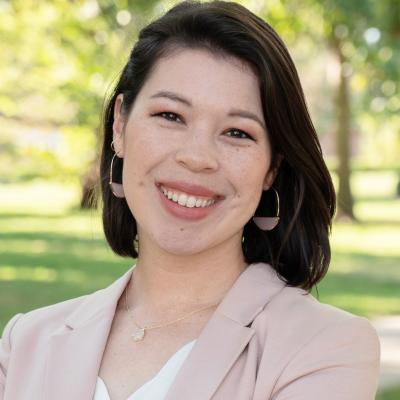
Annabelle Atkin
Dr. Annabelle Lin Atkin is an Assistant Professor in Human Development and Family Science at Purdue University. She received her B.S. in Psychology and Asian and Asian American Studies at the University of Connecticut, and her Ph.D. in Family and Human Development at Arizona State University. Her research interests are in the race-related development of Multiracial and Asian American adolescents and young adults. Using quantitative, qualitative, and mixed-methods approaches, her research has examined how different types of messages from parents about race and culture (racial-ethnic socialization) are associated with discrimination, racial identity, family relationship quality, critical consciousness, and mental health for Multiracial and Asian American youth. She has also developed measures for studying Multiracial family experiences, and utilizes critical Multiracial theory to inform her conceptual and empirical work. Her goal is to raise awareness about Multiracial experiences and the limitations of monoracial frameworks in science and in society broadly through education and outreach. Dr. Atkin is the recipient of the Asian American Psychological Association’s Early Career Award for Distinguished Contributions to Research, and the Society for Research on Child Development Asian Caucus Early Career Award.

Margarita Azmitia
I grew up in Guatemala with my six siblings and my parents. My dad was an engineer, and my mother graduated high school but could not afford university, so she became a secretary. My family's heritage includes Mexican, Mayan, Spanish, and German ancestry. In 1975, I graduated from high school and came to the University of North Carolina at Greensboro to major in premed. My English was terrible, but with the help of friends and professors, I muddled through my classes and social activities. I fell in love with psychology and completed my BA and MA there. I wanted to go home after this, but there were no jobs in developmental psychology. Therefore, I went to the Institute of Child Development at the University of Minnesota for my PhD. I teach at the University of California at Santa Cruz, where I have been for the last 30 years. I have two amazing adopted young adult daughters, and we visit our family in Guatemala yearly. Mentoring is one of my favorite activities, and it keeps me going; in 2019, I received one of three inaugural mentorship awards from the Spencer Foundation. I have an active program of research, and my doctoral students and undergraduate research assistants use mixed methods to study a variety of topics about first-generation college students, how identity intersectionalities contextualize minoritized students' transition to and through university, and how farmworker families endure despite climate change and a hostile political situation.
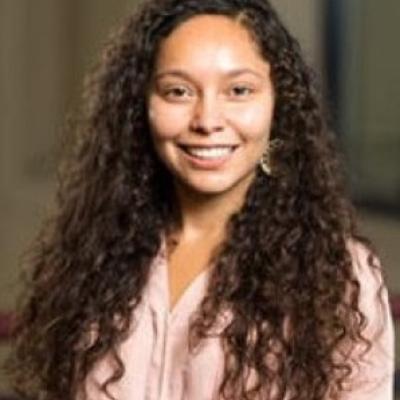
Josefina Bañales
Josefina Bañales, Ph.D. is an Assistant Professor in the Community and Applied Developmental Psychology Area at the University of Illinois, Chicago. She earned her PhD in Developmental Psychology from the University of Michigan in 2020. Dr. Bañales aims to promote racial liberation for racially/ethnically minoritized youth and their communities through her action-research, practice, teaching, mentoring, and leadership. She uses mixed-methods and youth participatory action research (YPAR) to investigate how racially/ethnically minoritized youth develop a critical racial consciousness, or beliefs, feelings, and actions that challenge racism. In collaboration with youth, schools, parents, and youth development practitioners, she co-creates opportunities that facilitate youths’ critical racial consciousness development and thus healing from oppression. Of note, she and her research team, which includes youth collaborators, are using mixed-methods and YPAR to develop the Roots y Resistencia intervention, which is an empirically-based intervention that facilitates Latinx youths’ anti-racist identity and anti-racism action.
Dr. Bañales is dedicated to translating her research to diverse audiences, including teachers, school administrators, and community organizers, through community-based discussions, talks, blogs, and podcasts. She has won numerous awards for her research, such as the National Academy of Education/Spencer Postdoctoral Fellowship (2025) and the Society for Research in Child Development (SRCD) Latinx Caucus Early Career Award. Dr. Bañales infuses her personal experiences as a Mexican American woman who is a first-generation high school, college, and doctoral student from the Southwest side of Chicago with her community-engaged research and practice. Dr. Bañales loves hot black coffee, singing, and walking at a very leisurely pace.
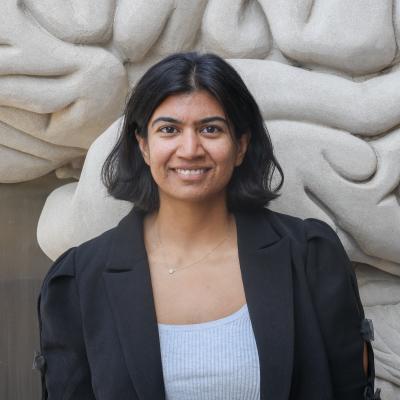
Natasha Chaku
Dr. Natasha Chaku is an Assistant Professor at Indiana University's Department of Psychological and Brain Sciences. She earned her PhD in Developmental Psychology at Fordham University and completed a postdoctoral fellowship at the University of Michigan. Dr. Chaku is interested in understanding how pubertal development is associated with cognition, health, and wellbeing across the lifespan and how links between puberty and lifespan outcomes differ across different social contexts. To investigate these questions, she uses intensive longitudinal assessments (e.g., daily diary), physiological data collection (e.g., saliva), and behavioral assessments (e.g., neurocognitive testing) alongside secondary data analyses and community-orientated data collection (e.g., youth participatory action research) to better understand youth’s lived experiences. Dr. Chaku has translated her work for a variety of audiences via blogs, videos, articles, and presentations for community organizations.
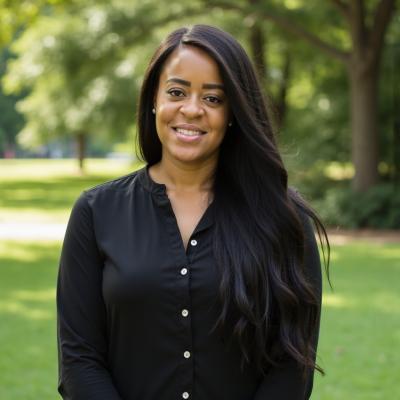
Nneka Ibekwe-Okafor
Dr. Nneka Ibekwe-Okafor is an Assistant Professor of African and African Diaspora Studies, Early Childhood Education and Psychology at the University of Texas at Austin. Her research sits at the intersection of developmental science, early childhood education, and social policy. She investigates the social and environmental determinants of Black children’s early development by examining how poverty, racial discrimination, structural inequalities, and educational inequities influence access to quality early care and education and the developmental outcomes of Black children from birth to age eight. Her research has a particular focus on identifying protective factors across various ecological levels in efforts to promote the optimal developmental outcomes of Black children. Her goal is to inform social policies and practitioner-led interventions through the science of human development.
Nneka received a Ph.D. in Human Development and Quantitative Methods from the University of Pennsylvania, Graduate School of Education, an Ed.M. from Harvard University in Prevention Science Research, and a M.S.W. from Columbia University. In her undergraduate studies, Nneka majored in African American Studies and Sociology and was a NCAA Division I volleyball player at the University of California, Davis.
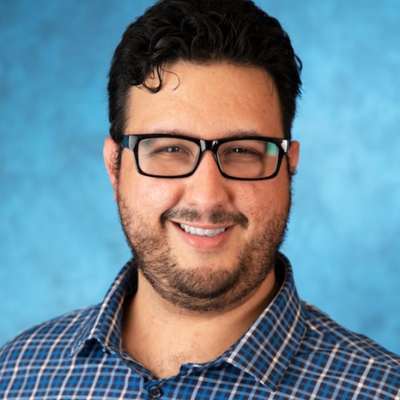
Alan Meca
Dr. Alan Meca (él/he/him) is an Assistant Professor in the Department of Psychology in the University of Texas at San Antonio (UTSA). He received his Ph.D. in Developmental Science from Florida International University in 2014 and completed a postdoctoral fellowship at the University of Miami. Broadly, his expertise is in identity development, acculturation, cultural stress, and positive youth development. Although his research has focused generally on identity development, most of his work has been on cultural identity development and acculturation among ethnic/racial minoritized youth, particularly among Hispanic/Latinx populations. Towards this end, his research agenda has focused on identity development and cultural stressors and their effects on health risk behaviors, mental health, and educational achievement. In pursuit of this research agenda, he has published over 80 peer-reviewed manuscripts focused on personal, ethnic/racial, and national identity and on the cultural dynamics among Hispanic/Latinx families. Currently, his research agenda is focused on refining measures of cultural identity, understanding the processes that govern how ethnic/racial minoritized youth navigate their cultural environment (e.g., code-switching, cultural frame switching), and identifying ways we can support youth experiencing cultural stressors such as discrimination, bicultural stress, and negative context of reception.

Gabriela Livas Stein
Gabriela Livas Stein is Professor and Chair of Human Development and Family Sciences at The University of Texas at Austin. Her research is grounded in cultural models of child development and developmental psychopathology, aiming to provide a deeper understanding of the challenges and strengths within minoritized communities. She explores risk and resilience processes, including the impacts of racial-ethnic discrimination, acculturative stress, and economic stress on youth and families. She also investigates promotive factors like coping strategies, racial-ethnic socialization, and familism values. Dr. Stein employs community-engaged approaches to develop and test prevention and intervention programs tailored to the mental health and cultural needs of underserved communities. Her research has been funded by NIDA, NIMH, WT Grant, and PCORI. She has served as the Vice President of Programming for the Society of Research on Adolescence, co-chair of the Ethnic Racial Issues Committee of the Society of Research on Child Development, and past chair of the Latinx Caucus of the Society of Research on Child Development. She credits her incredible mentors for helping her see what was possible, what she was capable of, and making room for her to grow!

Jingjing Sun
Dr. Jingjing Sun is an Associate Professor of Educational Psychology at the University of Montana. Her research centers on supporting minoritized children’s cognitive, social, and emotional development with strengths-based approaches. Collaborating with community members and interdisciplinary colleagues in the U.S. and China, she investigates the impact of broader ecological systems, including culture, land, community, and tribal sovereignty, on children’s learning and social-emotional well-being. She also examines how to support teacher learning, well-being, and integration of discussion-based pedagogies through coaching and sustained professional development. Dr. Sun specializes in designing mixed-methods research to understand learning and development from different strands of data. Committed to supporting early-career scholars, she is excited to join the SRCD Towards 2044 program as a mentor again for the fourth year.
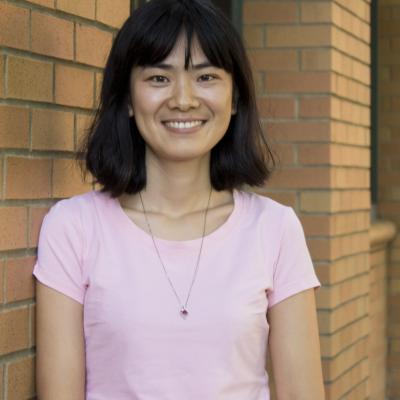
Yingying (Jennifer) Yang
I am an Associate Professor of Psychology at Montclair State University, where I direct the Spatial and Cognitive Development Lab. After completing my Ph.D. in Developmental Psychology (with a minor in Quantitative Psychology) at The University of Alabama, I served as a Research Associate Professor at Sun Yat-sen University in China before returning to the U.S. My research investigates how children, adolescents, and adults—both typically developing and those with intellectual or developmental disabilities—acquire spatial knowledge, memory skills, and problem-solving abilities in everyday contexts.
Over the years, I have been awarded several grants from the National Institutes of Health (NIH) and the National Science Foundation (NSF) to advance understanding of spatial cognition and to improve equity and inclusion in research participation. I have published over 40 peer-reviewed articles and book chapters, presented findings at international conferences, and served as a reviewer for prominent journals and granting agencies. As a teacher and mentor, I am passionate about guiding students from diverse backgrounds. I strive to cultivate an inclusive and supportive environment in my lab, where I encourage students not only to develop robust research skills but also to discover the joy and relevance of developmental science.

Chenyi Zhang
Dr. Chenyi Zhang is an associate professor of Early Childhood and Elementary Education at Georgia State University. His research explores contextual, cognitive, and emotional factors influencing children's early literacy development, as well as early childhood educators' professional growth. As an early interventionist, he designs and evaluates classroom-based literacy intervention programs that support young children's literacy development and creates professional learning programs to enhance educators' teaching practices.
He collaborates internationally with scholars from Asian countries, such as China and Japan, to study cross-cultural differences in early literacy development and literacy instruction. Currently, Zhang is researching how young children develop an interest in writing and exploring cultural differences in teachers' writing instruction between China and the U.S. He also leads a research team investigating the impact of the COVID-19 pandemic on young children's and parents' stress levels in the U.S. and China.
Zhang earned a Ph.D. in Human Development and Family Studies with a focus on developmental studies from Purdue University in 2013, and an M.S. in Human Development and Family Studies from the University of Missouri-Columbia in 2008.